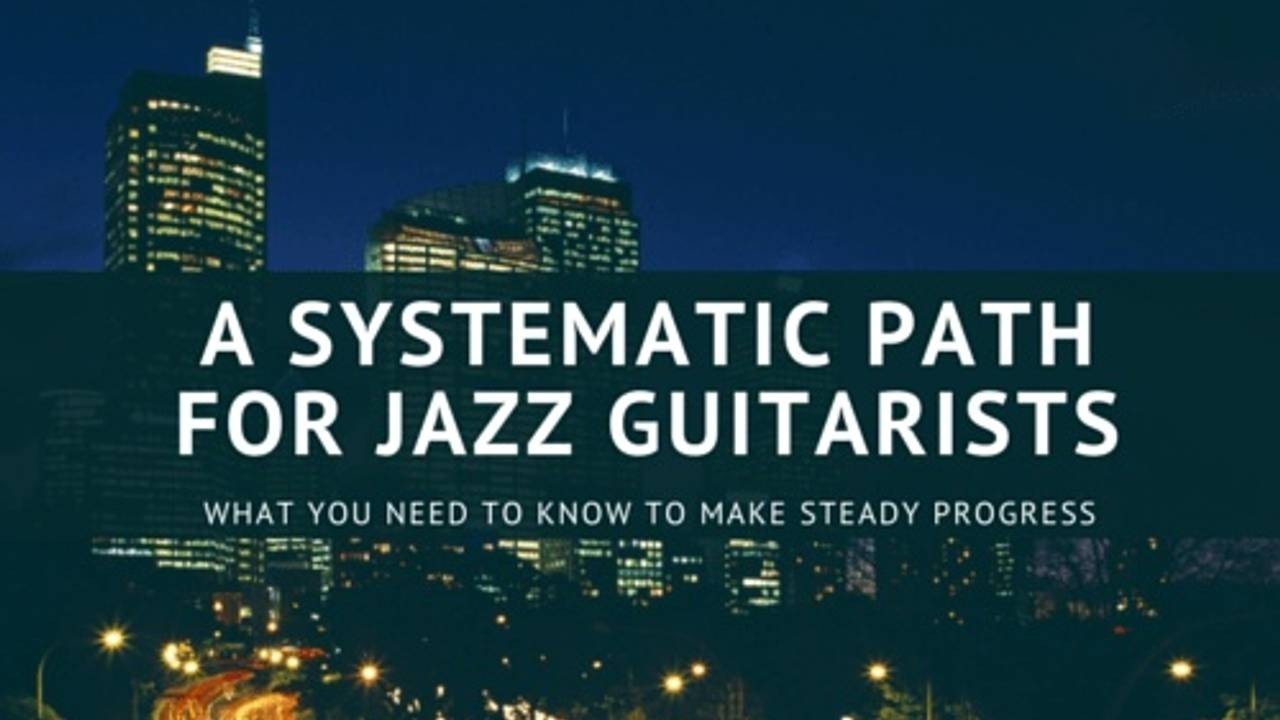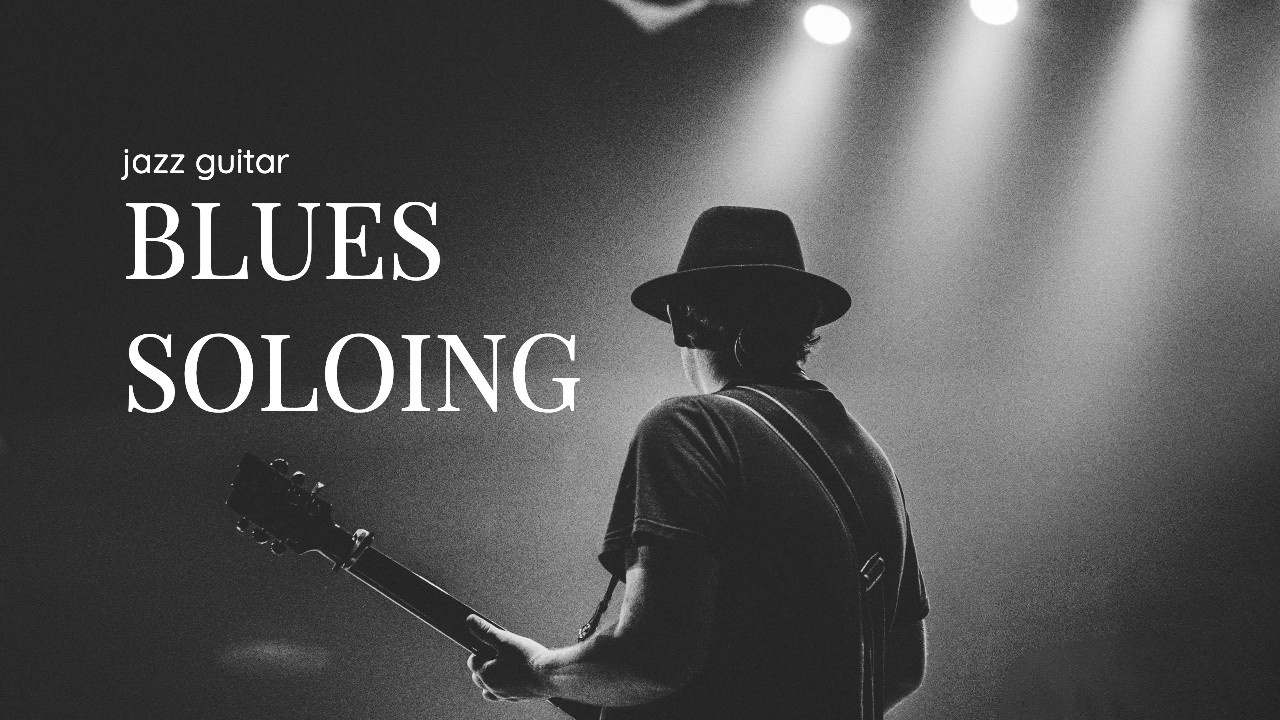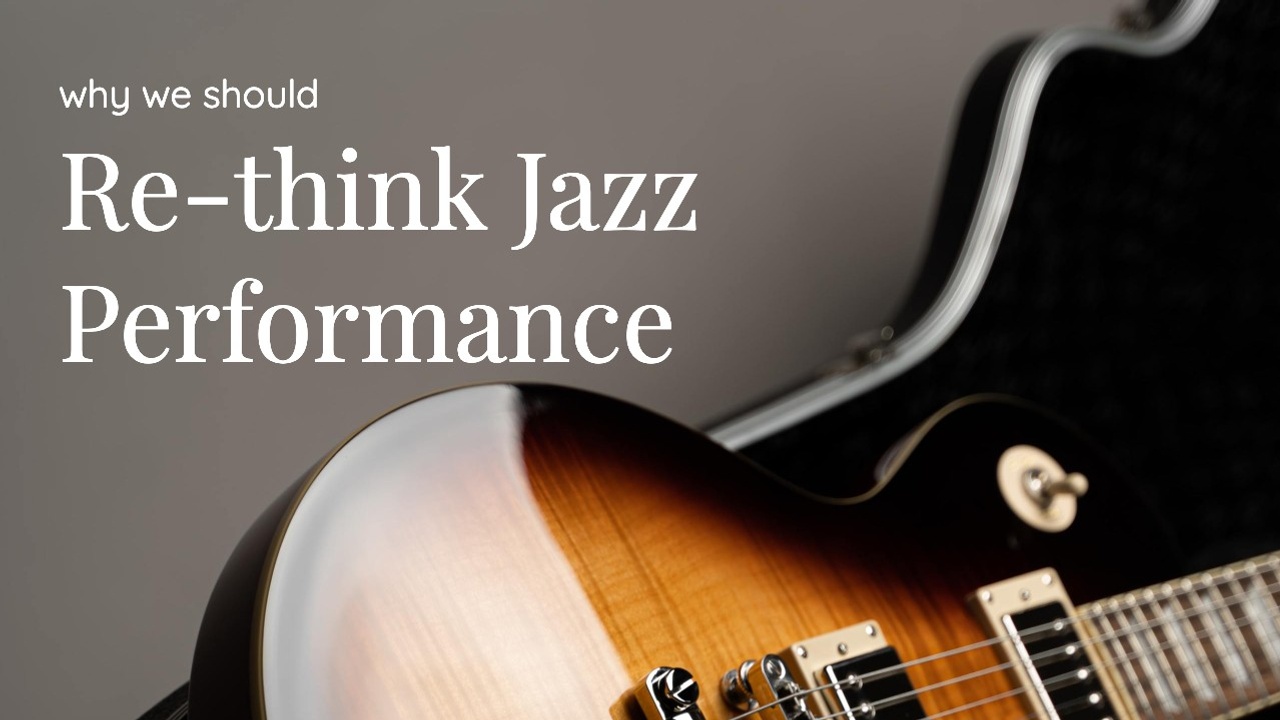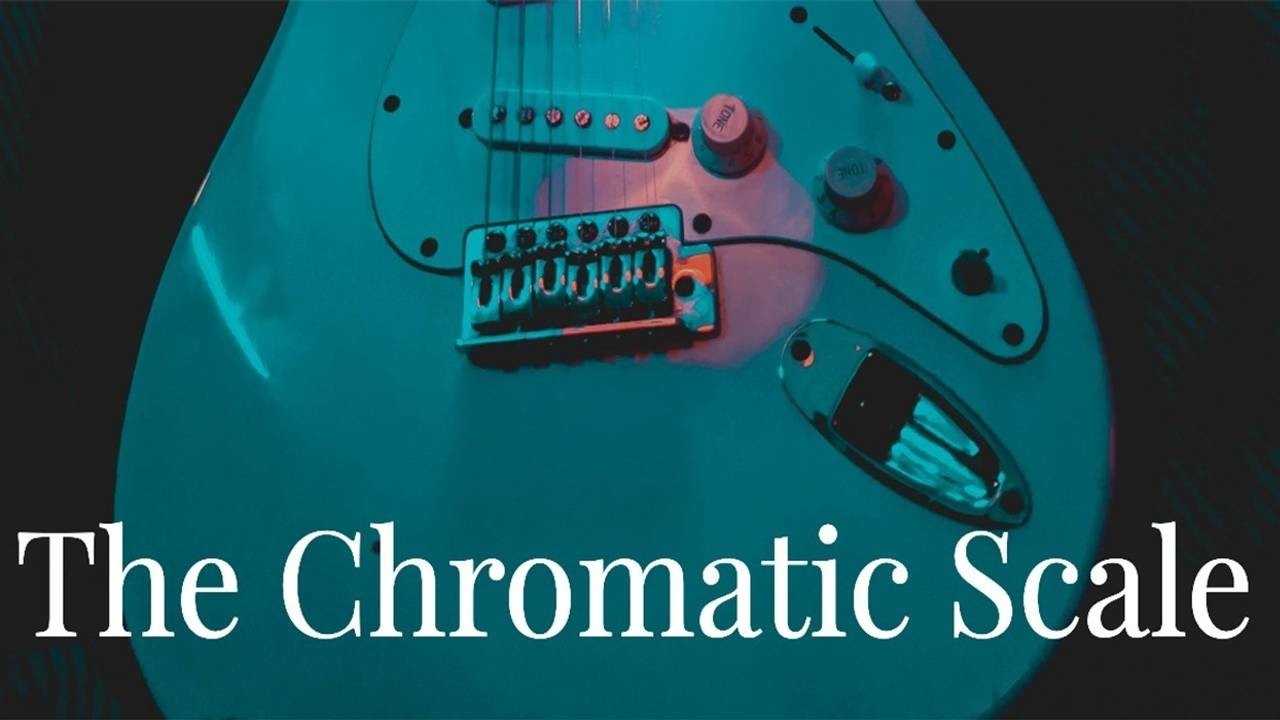
Jazz Guitar: A Systematic Path for Beginners - Part 3
Mar 07, 2014Well, if Part 2 of this series didn't scare you away, I don't know what will! (Just kidding).
No, but seriously: if you tried to apply the 10 steps found in part 2, you might as well already have exactly what you need to practice for the upcoming weeks / months. IF you want more clarification, please continue on reading ...
Still Confused?
For starters, I have created some sort of general application of the 10 steps above described in Part 2. It is very broad in scope, and very flexible.
... and, I'm just a little bit ashamed to confess: it does work for A LOT of beginners. :-)
So maybe I was all wrong after all, and that there really is such a thing as a complete simple path for beginners. Blerg! Nevertheless: you'll see, it still pretty flexible and smooth around the edges. Almost like a one-size fits all cap. Not all heads are the same, but it still works.
And why would a single thing work out? (since I've been telling you otherwise since the beginning?) Easy answer: Similar backgrounds and experiences. In brief: I think lots of people starting out in Jazz guitar have this kind of background:
Men over 40, most often over 50. That used to play guitar years back (as teenagers, say). That want to get into Jazz guitar now (or maybe they played blues, rock, pop, folk, etc. all their lives and want to get into Jazz now). That are looking for tips on the web (that's you!)
Guitar players are guitar players are guitar players. We have somewhat all the same typical shortcomings, and the same vision of the instrument ... and we've been listening to (more or less) the same kinds of music growing up. Way to go: putting everybody under the same umbrella, very unlike me! ;-)
The Plan
So the average JazzGuitarLessons.net visitor and pupil wants to get back at Jazz, and do it all yesterday. Hence, the need to practice: Improvisation, Comping, Repertoire and Technique ... and all these things need to be addressed right off the bat. (Special thanks to Glen, a private student, who made me reflect and come up with this neat little application of the 10 steps above). Here's what it looks like:
1- Improvisation
Weakness: can't improvise good solos! Ideal: create meaningful improvised melodies on Jazz-ish chord changes. Express ideas that come from the ears directly on the instrument.
Remedies:
- -A- Improvise on one string at a time, on C major scale only. Play "cowboy C chord", improvise one phrase, play chord again. About 1.5 minute per string, depending.
- -A*- Your choice: other exercise to improvise by ear mostly, if needed.
- -B- "Study" improvisation on your current repertoire (scales, arpeggios, guide-tones, etc. that are appropriate to the tune), and especially, how chords go from one to another (thinking of the resolving to the third). By "study", I mean pick one specific improvisation idea to work on the tune, then execute on the tune's progression. (For instance, play on the third of each chord only is a good place to start!)
Note 1: Don't memorize arpeggios/scales aimlessly, just for the sake of it. It should be applied to a tune or progression.
Note 2: Some of you want to play "out", like your heroes. Forget about altered notes for now. You need to play extremely "in" before you can play "out". :-)
Note 3: We can extend remedy A above to any mode of the major scale. Playing on single-strings on modes is a step that is further down the road ...
2- Comping (Chords / Accompaniment)
Weakness: can't accompany a soloist! Ideal: be able to "wing it" when comping on virtually any Jazz-ish chord changes. Ultimately, be able to comp for yourself during your own solos (think Ed Bickert).
Remedies:
- -C- Learn the BIG FIVE chords here... Memorize, one line of the score at a time. Go slowly, and don't forget to do descending motion as well.
- -C*- Get familiar with other chords in a systematic way (all chords in a key for instance). But don't learn just "shapes".
- -D- "Study" comping on your current repertoire (see remedy -B- above, it's the same idea). Pick one chordal concept then execute on the tune in question.
- -E- I suggest these books, a blend of melodic approach and chords: Three-Note Voicings (Randy Vincent), Barry Galbraith Solos (all pre-arranged chord melodies on great Standards).
3- Repertoire
Weakness: don't know any Jazz standards or Jazz tunes by rote. Ideal: ...
Remedies:
- -F- Memorize fully the melody + chords (simple shapes) on a blues tune (see Tenor Madness)
- -G- Memorize fully the melody + chords (simple shapes) on another tune. A standard. (e.g.. Autumn Leaves, All the Things, etc.)
Note 1: That is right, just knowing the tunes is the remedy. You NEED to have them completely in your brains, and this is achieved through repetition.
Note 2: Start a list of tunes you can play from memory. You aim, for now, is to have 10 tunes on that lists: 2 blueses, 1 latin, 1 ballad, 6 standards.
4- Technique
Weakness and Ideal: Speak for themselves.
Remedies:
- -H- Memorizing your 5-7 scale positions (like boxes). Or memorizing "diagonal" patterns on the fretboard. Either scales, or arpeggios. (Or both, time permitting). Think of fingerings, be precise. FOCUS!
- -I- Something with the metronome. Speed is in your ears, not in your fingers. It's like driving, the faster you go, the further ahead you have to look. At first, check out this page: Chromatic Scale (4-note and 6-note per string) and use the metronome on 2&4 for most the exercises.
Subdividing Your Time
What is left for you to do, before jumping into practicing: adjust the remedies from the suggestions above, ask questions if any. Note, that each remedy is A-B-C-D-E-F-G-H-I are fully customizable, and it can extend in many directions. We can discuss this more in lessons.
... then you must decide on how to subdivide your time. :-)
With 9 topics, you have 6.5 minutes for each in a 60-min session. But I do not recommend splitting everything equally. Obviously, some items in the remedies above will (and should) be "more important" to you, for now. So subdivide the remedies you will be working on in percentages. (Very important!)
Depending on your situation, remedies F and G (memorizing the tunes) may take quite a lot of your time in the beginning stages.
Don't forget to take a look at the 10 steps outlined in Part 2 of this series. Just so you keep the big picture in mind. You have to decide upon what you are going to be practicing (and for how long) each and every time you sit down with your guitar to practice seriously. ;-)









